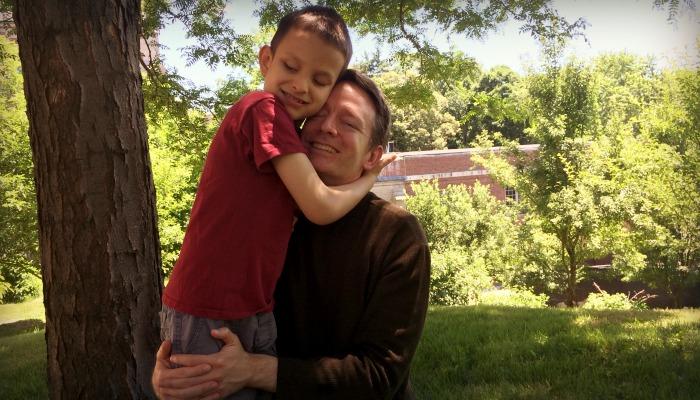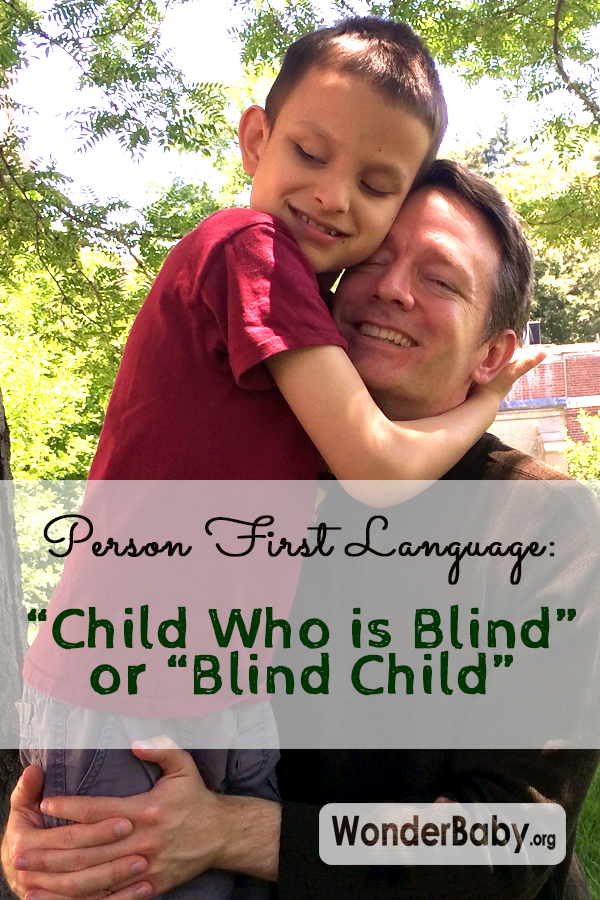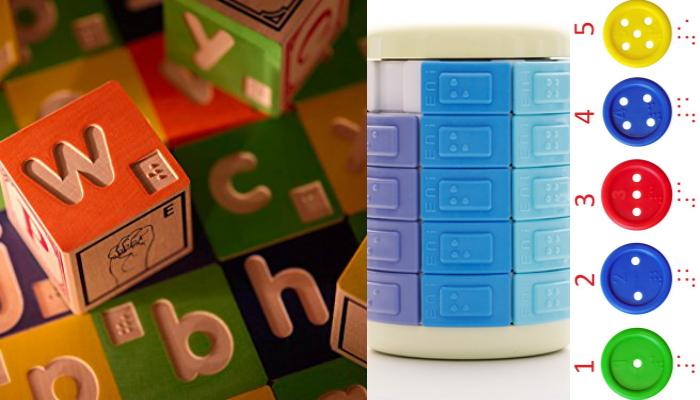Person First Language: “Child Who is Blind” or “Blind Child”

Person first language. You’re probably aware of this issue, but then again maybe you’ve not run into it yet. You have a child who is blind and as a parent there is a lot for you to think about, from accessibility to education and everything in between.
But have you thought about how you refer to your child? Do you say, “my blind baby” or “my baby who is blind”? Does it matter?
That depends on who you ask, but the answer for many people is Yes! Most professionals and organizations have decided to make it a policy to always use “person first language.” This means that the person (whether that’s an adult, child, student, patient, etc) is mentioned first, as in “person who is blind” (or “student who is blind” or “child who is blind” etc).
But is that the end of the discussion? Here are the arguments from both sides:
“Child Who is Blind”
- Language matters. They way we speak about people and things informs our thoughts and attitudes, as well as society’s in general. We need to start somewhere in advocating for awareness and understanding about blindness, and a good place to start is with our words.
- A child is a child first. Blindness does not define a child, it’s just an aspect of their experience, and, like all kids, children who are blind want to play, have fun, be loved. If we place the blindness first we may lose sight of the child and their personality.
- Jessica Kovacs writes about people first language on her blog, Thomas Marshall Does it All. She says, “It may seem small, but it makes a difference. Put the person first, that’s the point of people first language. Labeling people is unhealthy and distances us from each other. It points out how we are different instead of starting with how we are all like…. My son is a child first, and blind second.”
“Blind Child”
- The phrase “child who is blind” is long and doesn’t sound like natural language. Depending on the context, it can sound forced, making for awkward social encounters.
- Relegating the word “blind” to always be secondary places an implied stigma on blindness. We don’t ask people to say “student who is a preschooler” rather than “preschool student.” Why? Because there is nothing inherently bad with being in preschool. So when we do this with disability labels like blindness, are we saying that there is something inherently bad in being blind?
- It’s one thing to make the decision to use person first language yourself, but another thing entirely to ask others to do it as well. Asking a blind person or a family with a blind child to use “preferred” language takes away their own agency to define themselves, which goes against the whole point of person first language.
I don’t know that I would go so far as to say that this is a controversy or debate, but there are definitely two sides to this issue. What do you think?
Want to read more opinions? Here are some great links that have been shared with me:
- Person-First Language: To Use or Not to Use?
- Is People First Language dead? No, but demanding it is.
- i do not have neurotypicalism: where person-first language fails

Related Posts

Eye Conditions and Syndromes, Visual Impairment
Neuralink Announces Plans to Restore Sight to the Blind with Brain Chip
Elon Musk’s company Neuralink has announced plans to begin human trials of its new “Blindsight” brain chip by the end of 2025.

Visual Impairment
The Gift of Understanding: How a Young Child Helps His Blind Father Navigate Life
When a parent is blind, it’s natural for people to wonder how their sighted child will adapt. Will they struggle to understand their parent’s needs? Will they feel burdened by...

Braille and Literacy, Toys, Visual Impairment
24 Braille Toys for Kids Who are Blind
Everything from alphabet blocks to raised line coloring pages and activity books to puzzles to card and board games... and so much more! And it's all in braille ready for...